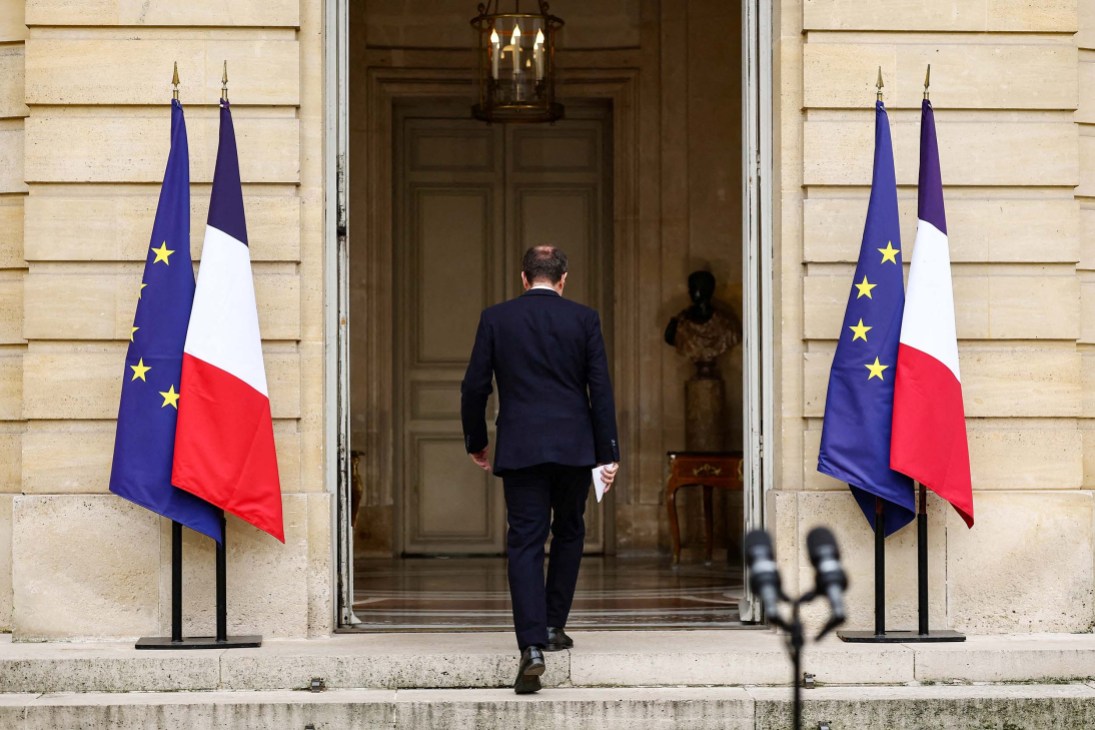Macron faces political freefall after France’s shortest-ever government collapses
As Sébastien Lecornu’s record-short premiership ends in chaos, Macron faces mounting pressure to restore stability and contain the far right’s growing influence in France.
There are commercial flights that last longer than Sébastien Lecornu’s government. Fourteen and a half hours after naming his cabinet, Lecornu tendered his resignation as France’s prime minister, marking the political downfall of a man who has been a member of every French government since Emmanuel Macron’s election as president in 2017. His exit is the latest blow to a parliament weakened by Macron’s decision to call snap elections last year, which strengthened the hand of a popular but woefully unprepared Rassemblement National (RN).

Lecornu’s cabinet received immediate backlash from parties within the governing coalition. Despite the addition of a few familiar faces, the cabinet was largely unchanged from that of his predecessor, François Bayrou, who resigned last month after losing a confidence vote.
Now, Le Pen and her allies say they will vote down any new prime minister until fresh elections are called. Macron has given Lecornu until Wednesday to hold “final negotiations” aimed at ensuring “the stability of the country.” If those talks fail, the president has ominously vowed to “take responsibility” – a phrase widely interpreted as a prelude to new elections.
So what are Macron’s options now?
First, he could name a member of the left-leaning opposition as his new prime minister. But having staked its credibility on undoing retirement reform and implementing a wealth tax on France’s richest households, such a government would have little chance of surviving for long, let alone creating the consensus needed to emerge from this political crisis.
A neutral technocrat would fare no better. As Lecornu lamented after his resignation, “There are a lot of red lines in the mouths of many and hardly any green lines” needed for compromise to emerge. The third option is to call new elections but these would almost certainly result in more seats for the RN, perpetuating the gridlock.
None of this will be to the taste of investors or the markets, with crucial fiscal decision-making repeatedly delayed to accommodate the chaos. This will only fuel the far-right, enabling the RN to present itself as the viable anti-establishment opposition option. As the political cacophony grows louder and louder, it is governance itself that’s being drowned out. It leaves us to dread what a few years ago would have appeared unthinkable: that France, the EU’s second-largest economy and home to one of the continent’s biggest militaries, could be rendered completely ungovernable.
There has been ample time for steadier voices to prevail. Instead, they have fallen silent. After rising to power in 2017 as the proud champion of a neither-right-nor-left philosophy, Macron now risks being remembered as the man who presided over France’s collapse.
For more about the state of the French government, listen to The Briefing, below:


